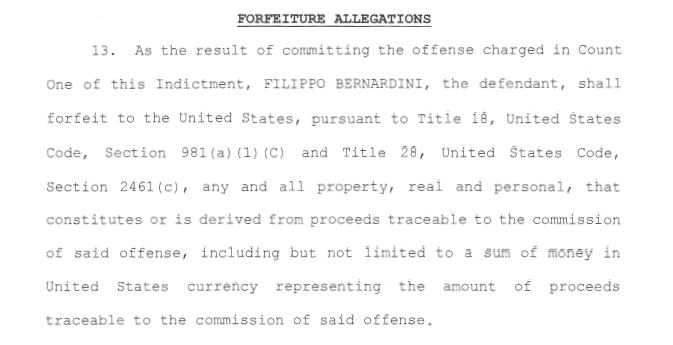My agent sent me an email early last year. It was a warning. There was a book thief in our midst! Now, the book thief wasn't one of those cool heist guys. He wasn't breaking into publishing houses like Tom Cruise in the first Mission: Impossible and stealing secret unpublished manuscripts. He was, instead, conducting nothing more complicated than an anti-phishing training via email on the people of the literary world.
The thief's main scheme (perhaps his only scheme) was creating fake email addresses very similar to real ones and then simply emailing people and asking them to send him their manuscripts. That means instead of fancy.editor@randomhouse.com. An email might come to you from fancy.editor@randornhouse.com. Instead of @wwnorton.com, the thief would use @wwnorfon.com. See? Tricky. Kind of. I guess.
This was a particularly funny email for me to get. My book was not yet published, but I was desperate for people to read it, to like it, to create any kind of buzz around it. If a thief had sent me an email that said, "Hello this is the book thief, I would like to read your book," I would have fainted with happiness. He wants to read my book, I would have whispered as I attached the manuscript document.
The thief did not email me, sadly. But he did email lots of other novelists, short story– writers, and memoirists. In December 2021, The New York Times reported on his scheme. He was so intelligent, publishing people told the Times. He understood how books were published. He knew publishing abbreviations like "ms" instead of manuscript. (These are both things you can google.)
Novelist Cynthia D’Aprix Sweeney, who was targeted by the thief but was smart enough to realize what was happening, asked the fundamental question: “It’s so befuddling because it’s not like fiction is driving our economy [...] Ultimately, how do you monetize a manuscript that you don’t own?”
This is what makes this crime so funny and so interesting. It's useless. It's not like the thief was stealing an upcoming Harry Potter book and selling it online. He was stealing ... regular fiction, books that make some but not a ton of money. Even in situations where an author did send a manuscript, the manuscript never appeared online. There was no trace of profit.
In August 2021, New York magazine's Reeves Wiedeman and Lila Shapiro reported that some people in the publishing industry knew the identity of the thief. The industry was in a tizzy. A few people approached the FBI with what they knew. When I read this I laughed and laughed. "AS IF THE FBI WAS GOING TO CARE ABOUT THIS!!!" I screeched! Don't they have more important things to do!
Here is an important part of that article that you must read:
“Would you be up for a phone call?” [Shapiro] wrote to the thief. The thief suggested an in-person meeting instead. When Lila said she lived in Brooklyn, the thief said they did, too. Lila then suggested meeting in Cobble Hill, at which point the conversation turned.
“How about Fuck You Hill?” the thief wrote back. “Or can I meet you at Silly Cunt Square?”
The message went on. “TAKE MY ADVICE,” the thief wrote. “DROP THIS STUPID ARTICLE AND STOP WITH IT IMMEDIATELY!!!”
This, to me, is perfect. Iconic criminal behavior for someone doing a crime that is ... objectively pointless. I love it. Crimes that do not hurt anyone and are funny are good to me. What did the thief get? A bunch of manuscripts and some people a little paranoid. But what did I get? MONTHS OF ENTERTAINMENT IN A PANDEMIC. The thief's existence was a small joy to me. I always checked my agent's, publisher's, and publicist's email addresses carefully. The thief never emailed me, but I enjoyed pretending they might.
Yesterday, my fun came to an end. The FBI arrested 29-year-old Filippo Bernardini, a rights coordinator for Simon & Schuster UK, at JFK airport. "Over the course of this scheme, Bernardini impersonated hundreds of distinct people and engaged in hundreds of unique efforts to fraudulently obtain electronic copies of manuscripts that he was not entitled to." The Justice Department wrote in a press release.
What the Justice Department did not figure out, or at least did not reveal, is why the fuck he was doing this. The indictment includes this little paragraph:

I find this very interesting because even in this grand jury indictment of Bernardini, it seems unclear exactly what he gained from this whole scheme. The government isn't even sure he made any money. They seem to want ... the manuscripts back? Most of those manuscripts have already been published, scanned, and posted to the internet. That happens even without a book thief. Everything gets pirated. But Bernardini doesn't seem to have been doing that. No evidence of him making profit off of these books has been presented at all.
Everyone is grasping at straws, trying to find an explanation for why this 29-year-old Italian man would want all of these unpublished manuscripts. The New York Times guessed that "knowing what’s coming, who is buying what and how much they’re paying could give companies an edge." The FBI press release alleges he did it "to steal other people’s literary ideas for himself, but in the end he wasn’t creative enough to get away with it."
But this doesn't make any sense to me. By the time a manuscript has been sold to a publisher there would be no way for an unpublished author to steal an idea, write a whole manuscript, sell it, and edit it before the original book came out. And it's not like Bernardini was rapidly working his way up the totem pole at Simon & Schuster UK because of his crimes. His LinkedIn shows that he's gotten a few promotions since he began stealing manuscripts in 2016 at the age of 24.
Maybe, after all this, his goal was drama, suspicion, intrigue. Maybe his goal was chaos! This, to me, is a noble goal.






